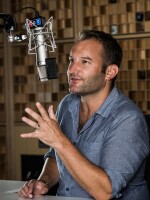MICHELE NORRIS, host:
From NPR News, this is ALL THINGS CONSIDERED. I'm Michele Norris.
ROBERT SIEGEL, host:
And I'm Robert Siegel.
While his top advisors were on Capitol Hill today, President Bush was promoting his new plan for Iraq to a military audience. He was at Fort Benning, Georgia, a sprawling Army base near the Alabama border where a combat brigade is preparing to return to Iraq earlier than expected. They'll be part of the troop increase that Mr. Bush has said is required to control the chaos in Baghdad.
NPR's David Greene spent the day following the president and sent this report.
DAVID GREENE: President Bush landed at the airstrip at Fort Benning and walked from Air Force One into a large carpeted hall where about 300 soldiers in fatigues were waiting for him with their families, and food.
President GEORGE W. BUSH: I'm proud to be your commander-in-chief and I'm honored to have lunch with you.
GREENE: The White House team set up a lectern right in the middle of the dining area, surrounded by people directly affected by his decision to send more troops to Iraq. The president faces polls showing a majority of Americans want the U.S. to begin leaving Iraq soon. And the president began his remarks today trying to explain this public discontent. Since the September 11th attacks, he argued, the nation has forgotten that it's facing a dangerous new enemy.
President BUSH: You know, I knew that right after the attacks, the American psyche being what it is, people would tend to forget the grave threat posed by these people. I knew that. As a matter of fact, I was hoping that would happen so that life would go on. But the fortunate thing for this country is that those who wear the uniform have never forgotten the threat.
GREENE: All the same, Mr. Bush acknowledged, the real threat in Iraq is from sectarian strife and not the evil of terrorism. And he told the soldiers here that even with additional U.S. troops, the only chance for success in Iraq depends on the young government and its prime minister, Nouri al-Maliki, showing more will than they have to date.
President BUSH: It's one thing to develop a plan. It's another thing to see it through. Prime minister and I've had some plain talking. I have made it clear that the patience of the American people is not unlimited and now is the time to act.
GREENE: But the question of how hard to press Maliki's government is a tricky one. Secretary of State Condoleezza Rice, who's leaving for the region tomorrow, was heard on an open microphone this morning saying she doesn't want to descend on the Maliki government and appear to just sort of beat their brains out.
As for the president himself, he said he was encouraged that Maliki had publicly threatened the militias and said they must disarm. His call included the powerful Mahdi Army, led by the Shiite cleric Moqtada al-Sadr.
President BUSH: That's the kind of leadership that the Iraqi people expect. And that's the kind of leadership I expect and the American people expect.
GREENE: Mr. Bush wrapped up his speech here by acknowledging the sacrifice he was asking his audience to make.
President BUSH: Some units are going to have to deploy earlier than scheduled as a result of the decision I made. Some will remain deployed longer than originally anticipated.
GREENE: The only promise he made was that he would try to make sure the soldiers have good equipment, training and housing.
President BUSH: I understand full well if your family's happy, you're happy. Same thing in my house, by the way.
(Soundbite of laughter)
GREENE: This weekend the president will retreat to Camp David where he'll confer with Republican leaders over two days. Meanwhile, he has another major speech - his State of the Union - coming in less than two weeks.
David Greene, NPR News, Fort Benning, Georgia. Transcript provided by NPR, Copyright NPR.






